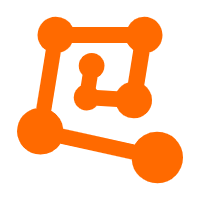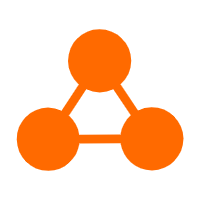By Alex Muchiri, an Alibaba Cloud MVP. He is the founder of Itesyl Technologies, a financial data and business banking solutions company.
Artificial intelligence (AI) is one of the most exciting developments of our time, promising an innovative and adaptable future. It is likely to play an ever-expanding role as technology continues to change our lives every day with new ways of doing things. AI has been with us for a number of years, but it has only entered the mainstream recently, impacting multiple industries¡ªeven our homes. These kinds of technologies shape the future of the workplace by enhancing productivity and efficiency. In this article, we look into the impact of artificial intelligence on the future. We examine if AI is all about losing jobs or if it is a useful tool that could be harnessed for human needs.
Everywhere, there is a discussion about artificial intelligence and machine learning, and how they will disrupt everything. But there is more to it than mere buzz and hype. AI is capable of some incredible stuff. From self-learning to cognitive analytics, AI can boost human abilities to solve complex problems and decipher complex data patterns that are really useful to organizations. In that regard, AI is a good thing. In fact, many organizations are already seeking ways to use AI to assist in their decision-making. On the other hand, AI's incredible capability is threatening to eliminate jobs. While AI makes companies efficient, agile, and more aware of their immediate environment, sometimes, it comes at the cost of a few jobs. The expectation is that as AI becomes more sophisticated, it will increasingly displace more jobs. In that regard, AI is a baddie, just a little bit.
In the coming years, expect multiple changes in both the industry and homes as a result of AI integration. It will affect manufacturing, customer care, transportation, energy, healthcare, communication, and more. Below are some of the most impactful changes we can anticipate:
Presently, there are already smart devices in consumer applications that rely on AI. When integrated with medical appliances such as monitoring units, artificial intelligence will greatly improve healthcare through faster diagnosis and by reducing associated costs. On a large scale, such appliances can work round the clock to identify developing conditions and possibly take corrective measures. This could be a game-changer as electronic health records provide the analytics backbone for AI to accurately predict health risks. However, it will take a quantum leap in imagination for this to see daylight. The unpredictability of patient data and varying formats will need to be factored in for AI to provide meaningful predictive analytics.
Another possibility is the use of wearable devices to monitor the health patterns of a patient or even the general population. Sensors on smartwatches, smartphones or even clothing, collect data about a patient and this data provides a wealth of information, which when analyzed with AI tools and merged with electronic health records obtained from a patient can provide unique insights about the patient's health. This especially helps senior citizens, who struggle with poor health. Artificial intelligence can monitor their vitals cheaply and replace the need for routine checks by nurses with even better outcomes. These are just a few examples of how AI could transform healthcare for the better and improve the wellbeing of people.
If you have spent some time engaging with Cortana, Siri, or Alexa, you may have noticed that sometimes the conversation is a bit 'too robot' and unempathetic. In fact, one of the major drawbacks of chatbots that we encounter on most websites is their unnatural communication. With artificial intelligence developing sophistication at the present rate, we can anticipate a future where it will be impossible to distinguish between a human and a robot engaging via a messaging platform such as Facebook. This is known as the Turing Test, a measure of AI's 'humanness'.
Some chatbots can research questions and provide good responses at the moment. The ultimate challenge is being able to analyze speech patterns, tone, and words to understand human emotion. At this level, AI would power chatbots that would not only respond in friendly words but also have appropriate emotional responses. It could be the beginning of a friendship between humans and robots, but that's a long shot. Businesses and organizations of any size could use such advanced tools to provide the best human experience at far lower costs.
Autonomous driving, one of the key promises of AI, is an intelligent transportation network that is safer, reliable, and better optimized for everyday use than what our current systems are capable of. Autonomous driving relies on complex machine learning algorithms that process thousands of data points per second¡ªincluding pedestrians, traffic lights, weather, road maps, and other vehicles¡ªand intelligently make decisions that will help a car navigate the streets among other vehicles. AI is critical as it will help make decisions when a vehicle encounters a situation that has not been encountered before, but it requires sophisticated technologies such as radar, infrared sensors, LiDAR as well as sound sensors to give a 360-degree view of the vehicle.
Today we hear a lot of experiments with self-driving cars from industry leaders such as Uber, Tesla, Google, and even universities such as MIT. But the current level of technology maturity is not sufficient to have cars roam the streets without some human supervision. Tesla, for instance, has an autopilot feature that allows 'cruising' autonomously but cautions the driver to be watchful all the time. Alibaba Cloud's ET brain for transport is yet another model working on enabling autonomous driving sophisticated enough to enable such vehicles to begin operations on our streets. Some of the more popular models in testing include Intel's Responsibility-Sensitive Safety (RSS)¡ªa common-sense decision-making policy for self-driving cars. It's a model based on good behavior and safe deriving. The other is MIT's GPS data and visual data combination to create a self-learning model that can navigate even in previously unassessed streets.
That's right, with sufficiently advanced AI, it is possible to create physical robots that behave like real people, or at least merge humans with robot technology. While the need to create intelligent cyborgs is not imperative, however, it does serve to overcome the physical and mental limitations of humans. Nonetheless, the real goldmine here lies in augmenting humans with computers, either to give them higher cognitive ability or physical strength. Researchers are already trying to find ways to augment human cognitive ability with robots, and some big names, including Elon Musk, have backed these ventures. It is yet unknown how practical such approaches are, but there is certainly a big dollar being thrown at the challenge.
On the other hand, embedding AI into the human body can have some real benefits to the physically challenged. With a chip embedded into the brain, it would be possible to pass brain signals to a prosthetic limb, or to control smart devices designed to help the physically challenged using mental signals. It could allow internet searches to be delivered into the brain straight away without the need for computer monitors.
Demand for energy is at an all-time high and keeps growing every year. The most reliable sources of energy are fossil fuels such as coal and crude oil products. Burning fossil fuels produces carbon dioxide that contributes significantly to climate change. There are several sources of energy that are clean and do not emit carbon dioxide¡ªincluding wind, solar, and nuclear. However, these technologies are expensive or dangerous, and thus, unreliable as an alternative source of energy. Nuclear energy, for instance, is responsible for dangerous radioactive byproducts and is not ideal for long-term use, in spite of its stability and reliability. However, nuclear energy based on fusion is clean and does not produce radioactive waste, making it an ideal alternative source of energy.
Human capability alone may be insufficient to produce practical and reliable nuclear fusion reactors. With the use of artificial intelligence, fed with the laws of physics and engineering principles, it is possible to create reliable, affordable nuclear fusion plants that will solve our energy crisis. On the same note, AI can help produce better wind and solar power systems using deep learning algorithms. While this may seem impossible for computers, AI tools can process millions of data points from big data analytics platforms and come up with solutions to our energy demands, and thus, solve climate change.
Artificial intelligence will contribute immensely to our daily lives, and its impact will be felt in business, government, and industries of all sizes and complexity. It will not be long before AI begins to really take root as an everyday companion. There will be self-driving cars ferrying passengers and goods on our streets and making transportation safer. Cybernetics will enhance human abilities¡ªboth physical and mental¡ªand even create artificial life forms. It will help solve some of the most biting challenges including energy, pollution, and climate change. While there are fears that AI could potentially turn against humans, it seems to me that it is worth the risk. After all, we could end up destroying ourselves from pollution or even nuclear wars. See the excitement coming!
ray - April 16, 2025
Alex - August 14, 2018
Alex - January 22, 2020
Apache Flink Community - August 21, 2025
Alibaba Clouder - November 5, 2018
Alibaba Clouder - January 9, 2020
 Platform For AI
Platform For AI
A platform that provides enterprise-level data modeling services based on machine learning algorithms to quickly meet your needs for data-driven operations.
Learn More Epidemic Prediction Solution
Epidemic Prediction Solution
This technology can be used to predict the spread of COVID-19 and help decision makers evaluate the impact of various prevention and control measures on the development of the epidemic.
Learn More Offline Visual Intelligence Software Packages
Offline Visual Intelligence Software Packages
Offline SDKs for visual production, such as image segmentation, video segmentation, and character recognition, based on deep learning technologies developed by Alibaba Cloud.
Learn More Network Intelligence Service
Network Intelligence Service
Self-service network O&M service that features network status visualization and intelligent diagnostics capabilities
Learn MoreMore Posts by Alex